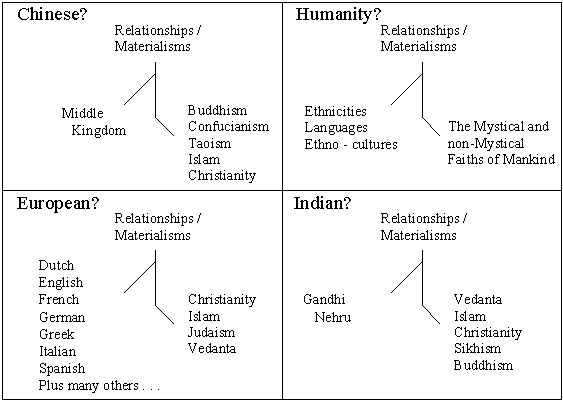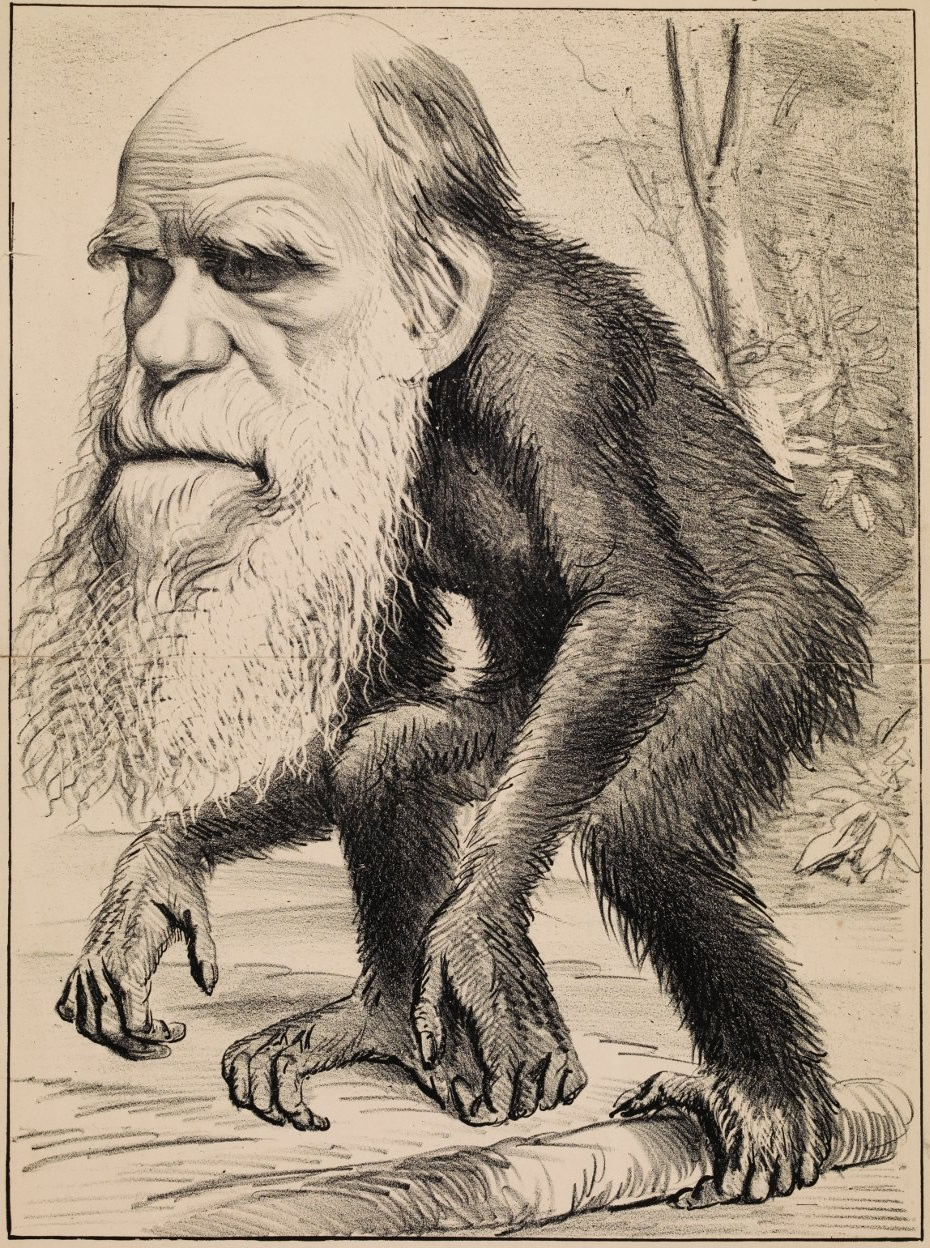![[science and religion albert einstein richard dawkins quotes]](enlightenment.gif)
science vs. religion quotes conflicts differences einstein microcosm macrocosm vivekananda
science vs. religion quotes conflicts differences![[science and religion albert einstein richard dawkins quotes]](enlightenment.gif) science vs. religion quotes conflicts differences einstein microcosm macrocosm vivekananda |
| Home > Contact Us > Science and Religion quotes |
|
|
This page features Science and Religion related quotes attributable to:-
The three persons pictured above - scientist, holy man, and Richard Dawkins, (formerly a professor and respected scientific author but following his retirement something of a professional skeptic), can be well imagined to hold divergent views somewhat reflective of those conflicts and differences. The quotes about to be presented reveal Richard Dawkins' deep skepticism and Albert Einstein's preparedness to actually support an essential role for Religion in providing directional guideposts for Science but also include two quotes from Swami Vivekandra which may point to Where, How, and Why Science and Religion could both ~ honourably ~ agree to disagree.
Richard DawkinsOn Thursday, 31 January, 2013 Richard Dawkins participated in a debate on the motion - This house believes that Religion has no place in the 21st Century - held at the Cambridge Union Society; a famous 200-year-old debating club associated with Cambridge University in England.As the debate began it was stressed that it was the place of organised religion that was being considered rather than individual religious endeavours or searches for meaning. During his turn to speak, (immediately after the contribution of a recently retired Archbishop of Canterbury), Richard Dawkins, favored of the motion. He opened by saying that he saw himself "as speaking as a scientist passionate about scientific truth" and stressed that his central concern was simply "whether religion is true", and, after suggesting that religious belief was made less possible by Darwinian science said that:- "to a scientist, however, what's really objectionable about religion is that we should be satisfied with a non-explanation to a difficult question instead of working hard to provide a real explanation". Richard Dawkins, in bringing his ten-minute long presentation to an close, summed up his Science vs. Religion argument in a few high-flown sentences, describing religion as:- "a cop-out: a betrayal of the intellect, a betrayal of all that's best about what makes us human, a phony substitute for an explanation, which seems to answer the question until you examine it and realise that it does no such thing.
Albert EinsteinWhen one views the matter historically, one is inclined to look upon science and religion as irreconcilable antagonists, and for a very obvious reason. The man who is thoroughly convinced of the universal operation of the law of causation cannot for a moment entertain the idea of a being who interferes in the course of events - provided, of course, that he takes the hypothesis of causality really seriously. He has no use for the religion of fear and equally little for social or moral religion. A God who rewards and punishes is inconceivable to him for the simple reason that a man's actions are determined by necessity, external and internal, so that in God's eyes he cannot be responsible, any more than an inanimate object is responsible for the motions it undergoes. Science has therefore been charged with undermining morality, but the charge is unjust. A man's ethical behavior should be based effectually on sympathy, education, and social ties and needs; no religious basis is necessary. Man would indeed be in a poor way if he had to be restrained by fear of punishment and hopes of reward after death.
... the scientific method can teach us nothing else beyond how facts are related to, and conditioned by, each other. The aspiration toward such objective belongs to the highest of which man is capable, and you will certainly not suspect me of wishing to belittle the achievements and the heroic efforts of man in this sphere. Yet it is equally clear that knowledge of what is does not open the door directly to what should be. One can have the clearest and most complete knowledge of what is, and yet not be able to deduct from that what should be the goal of our human aspirations. Objective knowledge provides us with powerful instruments for the achievements of certain ends, but the ultimate goal itself and the longing to reach it must come from another source.
It would not be difficult to come to an agreement as to what we understand by science. Science is the century-old endeavor to bring together by means of systematic thought the perceptible phenomena of this world into as thoroughgoing an association as possible. To put it boldly, it is the attempt at the posterior reconstruction of existence by the process of conceptualization. But when asking myself what religion is I cannot think of the answer so easily. And even after finding an answer which may satisfy me at this particular moment, I still remain convinced that I can never under any circumstances bring together, even to a slight extent, the thoughts of all those who have given this question serious consideration.
Swami VivekanandaExperience is the only source of knowledge. In the world, religion is the only science where there is no surety, because it is not taught as a science of experience. This should not be. There is always, however, a small group of men who teach religion from experience. They are called mystics, and these mystics in every religion speak the same tongue and teach the same truth. This is the real science of religion. As mathematics in every part of the world does not differ, so the mystics do not differ. They are all similarly constituted and similarly situated. Their experience is the same; and this becomes law.
Microcosm and MicrocosmThere are two worlds, the microcosm, and the macrocosm, the internal and the external. We get truth from both of these by means of experience. The truth gathered from internal experience is psychology, metaphysics, and religion; from external experience, the physical sciences. Now a perfect truth should be in harmony with experiences in both these worlds. The microcosm must bear testimony to the macrocosm, and the macrocosm to the microcosm; physical truth must have its counterpart in the internal world, and the internal world must have its verification outside. Yet, as a rule, we find that many of these truths are in conflict. At one period of the world's history, the internals become supreme, and they begin to fight the externals. At the present time the externals, the physicists, have become supreme, and they have put down many claims of psychologists and metaphysicians. |
|
||||
Inspiration can occasionally trounce Reason!!!
Is "Human Being" more truly Metaphysical than Physical?
 Faith and Philosophy!!! Our Human Nature - Tripartite Soul page Spirituality and the Wider World!!! People may well be spiritual, materialistic, ethnic and intellectual!!! |
 Popular, "Scientific", Rational, inadequate? ~ Darwinism Famous "Hornet" cartoon of 1871 (just after Darwin's ~ The Descent of Man) |
"You will hear things like, 'Science doesn't know everything.' Well, of course science doesn't know everything. But, because science doesn't know everything, it doesn't mean that science knows nothing. Science knows enough for us to be watched by a few million people now on television, for these lights to be working, for quite extraordinary miracles to have taken place in terms of the harnessing of the physical world and our dim approaches towards understanding it. And as Wittgenstein quite rightly said, 'When we understand every single secret of the universe, there will still be left the eternal mystery of the human heart.'"
Stephen Fry quoting Wittgenstein during a Room 101 TV program of March 2001Start of
Science and Religion quotes